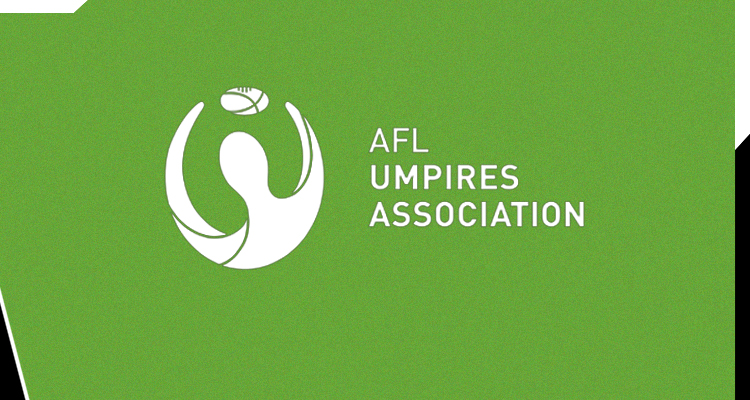Experienced counsellor Angie Bain has been supporting our umpiring group through the AFLUA Career Transition Coaching program for the past year.
As a qualified educator specialising in the high performance professional sector, Angie has provided wellbeing and development support to individuals, teams and organisations for 25 years. Her area of work has heavily involved managing elite sports, including the AFL, Cricket and Netball.
We recently spoke with Angie to get an insight into the coaching process that she runs with the umpiring cohort.
A key component of Career Transition Coaching is understanding the umpires’ interests and what is important to them in terms of life and career. “Because most umpires have multiple careers and multiple identities. These identities need to be supported whilst you are umpiring, so that those can play more of a leading role in your life after umpiring,” Angie said. “It’s about exploring all those, and helping the umpires make good decisions about their transition out of umpiring.”
She further noted how the strengths umpires develop through professional umpiring can be favourable in helping them transition into another career – skills such as their decision-making, their ability to manage conflict and to self-direct. “They are all traits that you need to apply, which are going to make you successful in a different career,” Angie said.

Experienced counsellor Angie Bain has provided wellbeing and development support to individuals, teams and organisations for 25 years. (Image credit – Angie Bain)
Transitioning away from umpiring can lead to occupational lifestyle changes, and can be challenging to adjust to, considering the connections and the involvement umpires develop within the football industry over a period of time.
To make this transition smoother and more manageable, Angie employs an individualised approach to her Career Transition Coaching methods, so that the umpires feel valued in the process. “The best transition support is one that is tailored uniquely to the individual. Because every individual, who’s coming out of that sport, has got a completely different attachment to their experiences in that sport. They’ve got different sets of values and beliefs around themselves, and different personalities,” she reasoned.
Planning for their post-umpiring careers early is also important, as it allows more time to gauge and invest in different career pathways.
“Transition starts as soon as you are contracted, because the industry is so tough,” said Angie. “My experience tells me – when you have other hobbies and interests you pursue, whilst you’re performing at the elite level in one of them – it helps you get more balanced and manage your mind better, because all your eggs aren’t in one basket.
“Research tells us that when you have dual identities, generally speaking, those performers will transition better while they are still in their career, because they’ve got other outlets to process their performance.”
Having consulted with umpires through this transition process for quite some time, the most rewarding aspect for Angie is to be able to help the umpires help themselves.
She said, “Through this process, they take on board the things that you help them with. That creates a self-driven process for them: that they can do it on their own, they have got the capacity and the qualities to actually transition. They need a little bit of guidance and support.
“Towards the end of this process, you start to see them with greater confidence and greater courage. That’s helping them make good, informed decisions, as to what they are going to then give energy to, going forward. The growth of the individual is what is so rewarding about it.”

